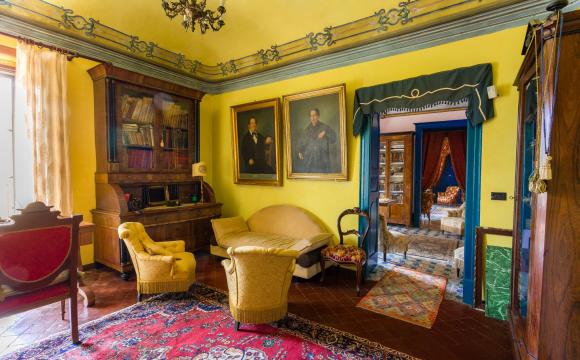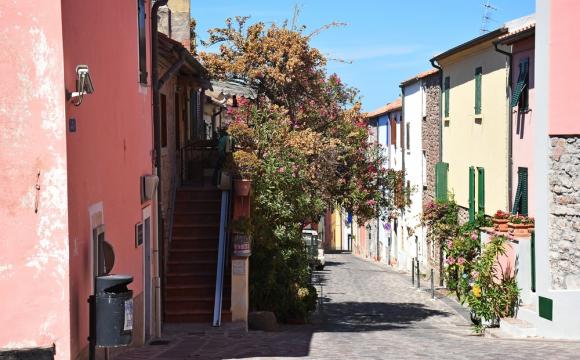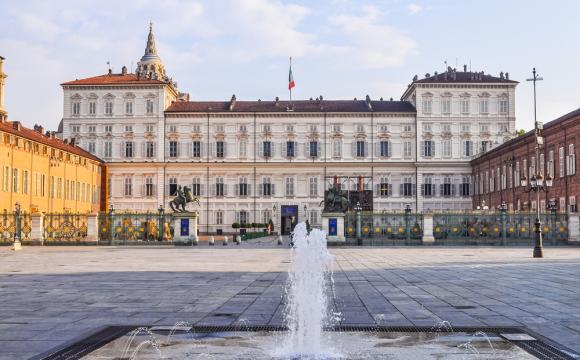Article by Nicholas Gent
A Brief Historical Background that led to the Formation of the MSMT
 Though Italy fought bravely as an ally in the First World War, Mussolini, a dictator seeking to extend the Italian Empire and who subsequently fell under the spell of Hitler, took Italy into the Second World War in 1940. This was against the wishes of the majority of the Italians.
Though Italy fought bravely as an ally in the First World War, Mussolini, a dictator seeking to extend the Italian Empire and who subsequently fell under the spell of Hitler, took Italy into the Second World War in 1940. This was against the wishes of the majority of the Italians.
Since at least the end of 1942 things had been going badly for Mussolini, who was also suffering from poor health. Finally, in July 1943, Mussolini was imprisoned, the Fascists went to ground and the King,Vittorio Emmanuele, appointed Marshall Badoglio head of an interim Government. On 8th September 1943 most of the Allied POWs (prisoners of war) were released into a country entirely strange to them, which was celebrating what it hoped and fervently believed was the end of a war it had never wanted.
But disaster struck within three days. The German army, already stationed in great numbers throughout the country, had been extending their control and Vittorio Emmanuele and the Italian Government fled from Rome. Mussolini was rescued by the Germans on 12th September and quickly established a military government, which proclaimed martial law. Official posters appeared everywhere, even in remote villages, detailing the laws including the death penalty plus the destruction of home and property of anyone caught assisting Allied POWs in any way.
In this new situation, the more ardent Fascists, who had taken cover when Mussolini was arrested, emerged seeking revenge and were more dangerous than before. The people feared them as much, if not more than the Germans, who were too busy fighting a losing war to search for escaped POWs.
Everywhere the escapers confronted a difficult environment, with winter fast approaching and in which they lacked bearings, quite often they just relied on mountain ridges for finding their way!
Psychologically life after imprisonment was difficult for the great majority who had been in captivity for two years. Many missed the comforting routines of being caged up (notwithstanding poor diet and boredom).
Most ex-POWs will acknowledge that they owe their lives to help from the Italian people during this difficult time and many of the Second World War veterans have made friends for life as a result. Roger Absalom, in his definitive book on these times and events, A Strange Alliance, tells how some 25,000 POWs were released into the Italian countryside and how the Italian people came to their aid immediately. Without the unstinting help, many of them would never have survived and they shall remain in their debt forever.
These Italians were often very poor and made big sacrifices in terms of sharing their limited amount of food. It should also be borne in mind that they were previously enemies and exposed to the Fascist propaganda machine of Mussolini. The young Allied servicemen had no reason to expect anything but hostility and resentment from the civilian population.
They also took risks with their lives and properties, there are sadly many examples of Italians who were executed by the Germans or by the Italian Fascisti or who had their properties destroyed.
A few examples of the risks and sacrifices taken by the Italians are shown below:
• Stuart Hood MBE, former POW Escaper and Patron of MSMT
They were generous and kind and looked for no rewards…and there were many others whose names I never learned: women who brought food into the hills for myself and other young girls tending their sheep in the field who formed a network of intelligence to warn of danger, men who offered support and comradeship. Some were motivated by a belief in Christian charity, others by political ideals, many by instinctive human solidarity.
• Donald Jones, former POW escaper, extract from his book, Escape from Sulmona
Donald Jones was hiding in the Morone mountains, near Sulmona, in a charcoal burner’s hut. He relied on many Italians who visited him for food. These included women carrying pots containing gnocchi on their heads, who had taken at least five hours to climb from the village in the valley.
Shortly after leaving the charcoal burner’s hut Donald Jones visited a village, New Salle. There he met the two ‘gnocchi women’ and a woman who had brought her small son. The young boy wanted to give up his last few ounces of sugar, which were wrapped in a newspaper, even though many months before sugar supplies had ceased.
• The Tragedy of Vinca, near La Spezia.
Apart from its affiliation to the partisans, Vinca was a regular staging post for those seeking to escape over Monte Razore and Monte Altissimo, to Allied lines. On 24 August 1944, Vinca received a visit from the German SS and the Apuanian Black Brigades. Nearly all the young men were in the mountains and the occupants of Vinca that day comprised women, children and old men. 174 civilians were murdered, 144 of them women and children.
Despite this appalling massacre, the people in the areas continued to support the partisans and the Allied war effort until Liberation in April 1945.
Formation and Activities of the MSMT
The Trust was established in recognition of the courage and generosity of the Italians, described by Sir Winston Churchill as ‘ a great spontaneous gesture of humanity’.
The Trust is a registered charity, which was set up in 1989. It was founded by Keith Killby, who is an OBE and Cavaliere Ufficiale and other former Brltish servicemen who had been POWs at the time of the Armistice. Keith Killby remains actively involved with the Trust.
The Trustees include Sir Thomas Richardson, ex Ambassador to Rome, Sir Nicholas Young, chairman of the Red Cross and other sons of ex POWs. The dedicated chairman of the Trust, Brian Lett, is the son of Major Gordon Lett DSO, former war hero escapee and partisan.
The Trust awards bursaries to young Italians to come to England to improve their English skills. The average size bursary is £1200 and funds a one month course at a language school in Britain and lodging with a family. The number of annual bursaries is now typically 20 to 30. The bursaries are normally awarded to students whose families helped the POWs or who come from areas, which were particularly active in helping out Allied soldiers. A total of over 250 bursaries have been awarded to date.
Only one of the Charity’s workers is paid and expenses are no more than 10% of revenue.
Funds are received from former POWs and their families and also from the Freedom Trails that the Trust organises annually.
Freedom Trails
These trails have been organised by the Trust every year since 2001. These retrace the steps of escaping Allied POWs and commemorate the help given and sacrifices made by the Italians. In addition they raise much needed funds for the Trust.
The first trail, in May 2001, was inaugurated by President Carlo Ciampi . During the ceremony, in the beautiful main square of Sulmona, Piazza Garibaldi, Keith Killby gave an emotional speech thanking the President.
The trails involve trekking for three to four days in the same mountainous country which acted as a refuge for the escaping prisoners. To date these have been in the Abruzzi, Marche and Tuscany/Piemonte regions.
What is the ultimate aim of the Trust?
The ultimate aim of the Trust is that we should never be allowed to forget the huge sacrifices and risks taken by so many Italian rural people for the Allies, an extraordinary gesture of humanity. This should in turn help to promote relations between Britain and Italy and international understanding.
The Trust also hopes to keep alive a memory of true courage and humanity, one from which both our and future generations can all be inspired.
Further Information
If you would like to find out more or become a supporter of this wonderful charity you are welcome to contact the founder, Keith Killby. His address is Flat 7, 18 Lambolle Road, London NW3 4HP. The phone number is +44 (0)207 431 0433
The Monte San Martino Trust is registered charity number 328352

San Martino Freedom Trail; August 21st-25th 2005
Rossano [Liguria] to Seravezza [Tuscany]
Join us on this four day charity walk through the marble mountains of Italy, as we re-trace the steps of numerous escaping Allied Prisoners of War through the liners to safety in World War Two; as we commemorate the massacre by Nazi Fascist forces of 174 old men, women and children at Vinca on the 24th August 1944; as we remember the enormous sacrifices made by the ordinary Italian people to protect and assist our fellow countrymen on the run in Northern Italy; and as we celebrate the end of the Second World War in Europe. For full detrails please contact Brian Gordon Lett, by email or telephone 07970 834352, fax; 01749 890190.












